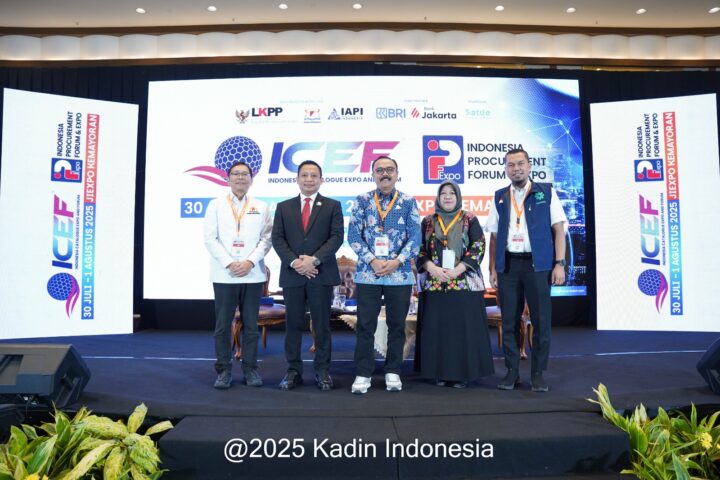
Jakarta - Andi Yuslim Patawari, Vice Chairman of the Indonesian Chamber of Commerce and Industry (Kadin) for the Kalimantan Region, emphasized the importance of enhancing business actors’ competencies in the procurement of goods and services to prevent irregularities and strengthen healthy partnerships between entrepreneurs and the government.
He conveyed this message during a talkshow at the Indonesia Catalogue Expo and Forum (ICEF) and Indonesia Procurement Forum & Expo (IPFE) 2025, titled “Transformation of Healthcare Services through Digitalization and Sustainable Procurement for a Healthy Indonesia 2045,” held at the Jakarta International Expo (JIExpo) Kemayoran, Jakarta, on Friday, August 1, 2025.
In his presentation, Andi stated that nearly all institutions today emphasize competency as a prerequisite to prevent potential legal violations. However, he revealed that unresolved issues persist in the field.
“When we talk about procurement of goods and services, competency is needed across all sectors. Almost every institution now implements competency requirements to avoid findings and irregularities that could lead to legal issues,” he explained.
He cited cases during the COVID-19 pandemic, where several entrepreneurs partnering with the government in procuring medical equipment faced legal challenges, despite transactions being conducted officially and in accordance with directives from local governments.
“During COVID, frankly, our government was less capable of anticipating all extraordinary events occurring on the ground. Governors (local governments) stated that any entrepreneur could bring Personal Protective Equipment (PPE) and medical devices. We purchased and conducted transactions as per regulations. But what happened afterward? Many of our friends, perhaps from associations, were investigated by law enforcement, even though the circumstances were extraordinary,” Andi said.
Furthermore, he highlighted ongoing challenges faced by business actors, ranging from digital divides and low health worker literacy to insufficient incentives for technology adoption.
Yet, he questioned whether business actors, even after meeting all standards, are truly guaranteed protection from legal issues.
“If all elements have been fulfilled by the business actors, is there a guarantee of no interference? Is there a guarantee that our colleagues will not be summoned by law enforcement? This is something we need to discuss together,” he asserted.
Andi also stressed the importance of protecting business actors affiliated with official associations and possessing technical competence from legal uncertainties once their work is completed in accordance with regulations.
“The hope is that after the job is done, no one should be summoned by law enforcement again. Apologies, I am also a businessman, and I speak from real field experience,” he added.
As a solution, Andi encouraged closer collaboration through the utilization of digital technology in the procurement process.
According to him, digitalization can reduce direct interactions that potentially lead to violations while simultaneously enhancing transparency in selecting credible vendors and business partners.
“With the digital era, this is essentially a stage that minimizes violations. Because interactions with the procurement committee are no longer face-to-face but through technology, we can identify worthy vendors and strategic partners by prioritizing professional principles,” Andi concluded.
National Economy
Regional Economy
National Economy
Regional Economy